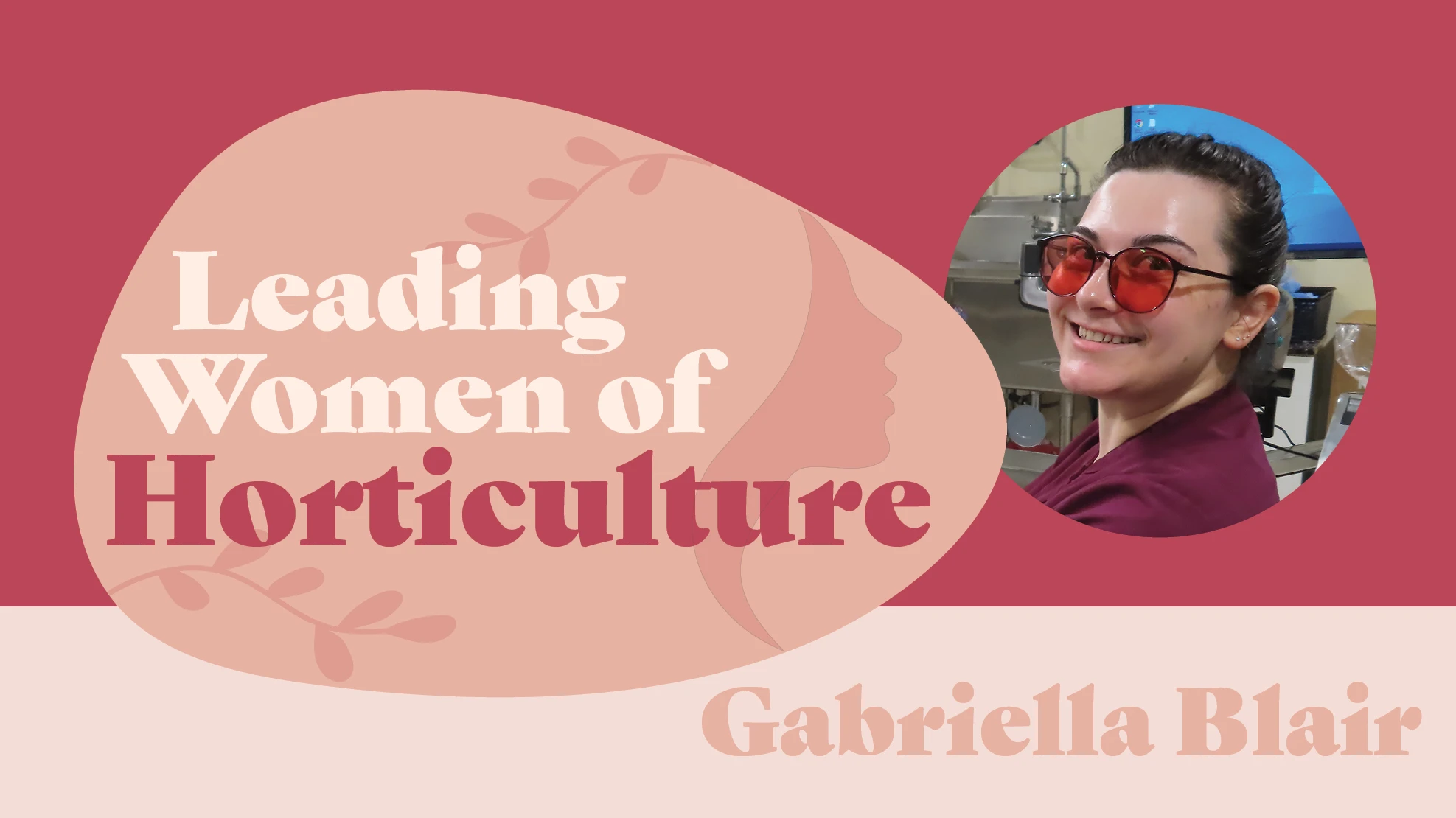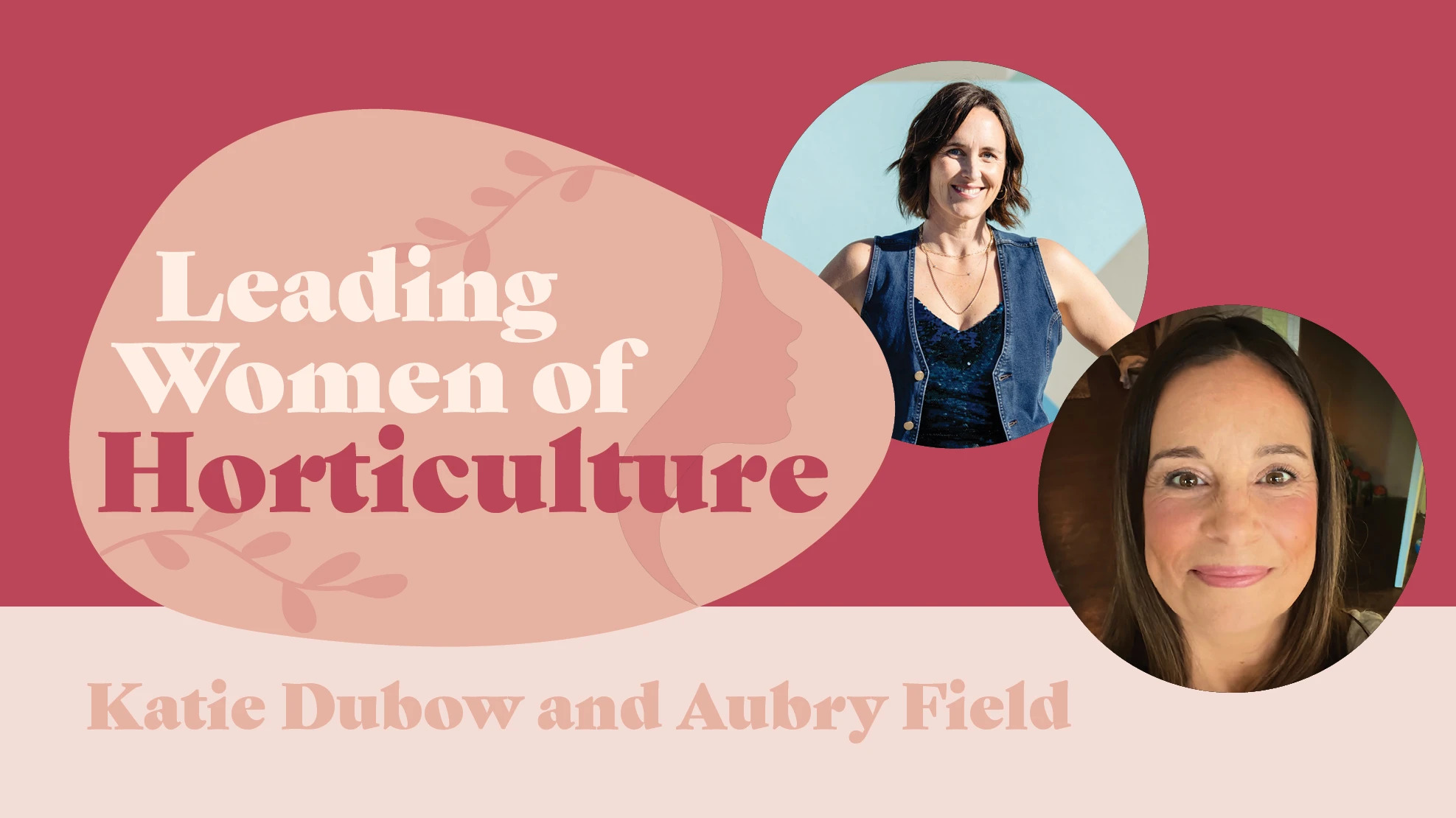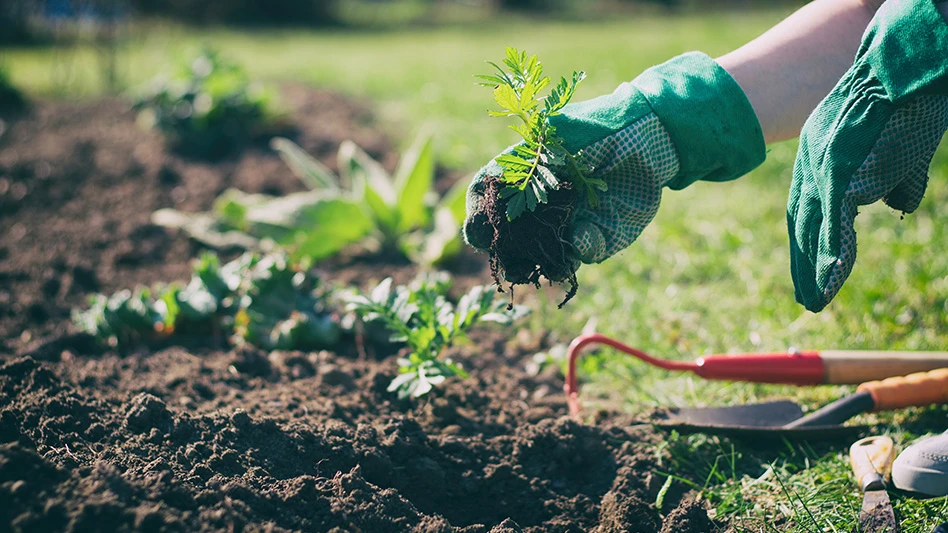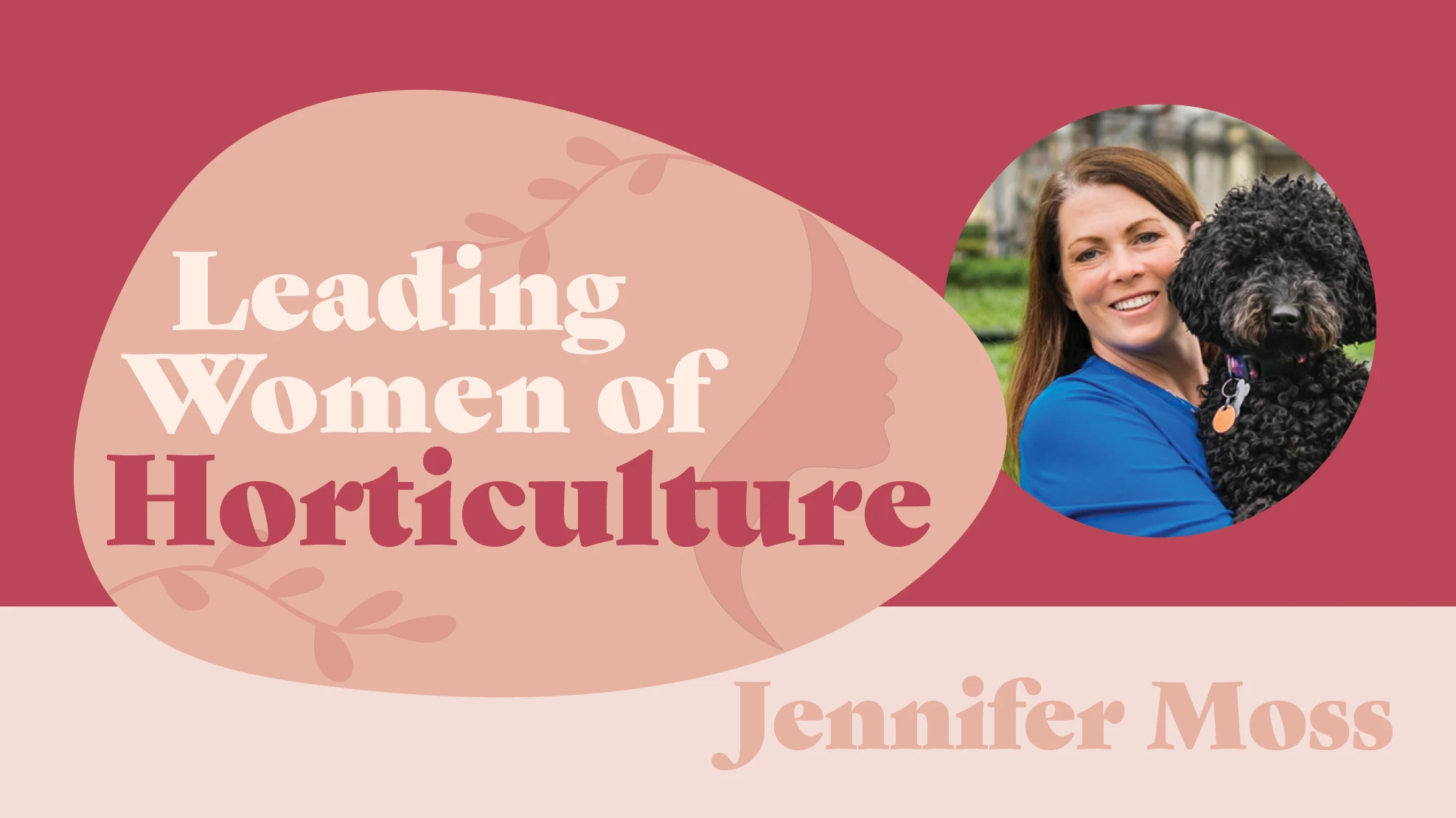

Growing up in rural Massachusetts, Eliza Blank just assumed she’d inherit a green thumb from her mother, who maintained a lush garden and a plethora of tropical houseplants — some of which are older than Eliza. But when Blank moved to New York City, she realized there was a huge gap facing urban Millennials like herself: She didn’t have the access to plants or the plant knowledge that her mom had.
“As a 21-year-old living in Manhattan in 2007, I realized I didn’t actually know anything about plants,” Blank says. “I bought my plants at Home Depot, brought them home on the subway, carried them up six flights of stairs to my 200-square-foot apartment — and killed them, because I didn’t know what they were or how to take care of them.”
Starting her career as a brand strategist after graduating NYU with a communications degree, Blank recognized that there wasn’t a strong consumer brand that made people crave plants on their windowsills. Five years later, after gaining more “real-world experience” and “operational chops,” she turned this idea into a business plan. She launched The Sill, an online plant retailer, in 2012 to demystify plant care for novice green thumbs.
“Our mission is to connect people with plants,” Blank says. “We’re catering to an urban Millennial audience that doesn’t have access to cars or garden centers — or, quite honestly, time for gardening. So we present plants as something achievable and approachable.”
Initially, Blank started the business exclusively online because it was the quickest, least expensive way to establish a storefront in NYC. With about $10,000 from a Kickstarter campaign, Blank built the business herself, deciding which plants to offer on the website and even delivering orders around the city.
The first physical storefront came in 2014, with Blank’s mother co-signing the lease for a small corner shop in Manhattan’s Chinatown neighborhood. Taking on brick-and-mortar overhead was an expensive risk, but Blank says it was essential to advance The Sill’s mission.
“[A website] is a fantastic tool to reach and educate customers, but ultimately, this is a very tangible, emotional product category,” she says. “People want to see, touch, feel and ask questions in person, so we were able to grow the business in a totally different way by having both an online and offline component.”
The second location opened on the Upper West Side in December 2017, offering another escape from the concrete jungle. Today, The Sill delivers houseplants anywhere in the contiguous U.S., fulfilling orders year-round from a plant warehouse in New Jersey. Business has tripled during the first half of 2018 alone as The Sill strives to “inspire confidence in the next generation of plant parents.”

Presenting plants
Both on its website and in its two shops, The Sill offers a collection of low-maintenance plant varieties that are curated for indoor apartment life and consistent with the latest design trends. Patterned plants have been hot, with calathea emerging as The Sill’s biggest plant trend of 2018. The Sill was an early adopter of pileas, which also remain popular.
The challenge, as an online plant retailer, is that The Sill’s customers expect every plant to look like the ones pictured on the website. To meet these high standards of quality, Blank overcommunicates with growers and other vendors about product specs and business forecasts, so they know exactly what she needs and when.
“We have a very specific sense as to what we want our product to look like, because once we take a photo, that’s what the customer expects to show up at their doorstep,” Blank says. “We can’t just sell plants that are healthy; we have to sell plants that are both healthy and commercially viable from an aesthetic perspective.”
Considering that level of quality, “our plants are competitively priced,” Blank says, in line with her goal to make plants accessible to everyone. Prices range from a small $6 philodendron to a $65 money tree potted in The Sill’s American-made line of modern ceramic stoneware. The exclusive line of pottery, which The Sill has offered for about five years, “has continued to set us apart,” Blank says, while raising the price points of pre-potted plants.

Though customers sometimes complain that the pottery is too expensive, many are surprised that plant prices aren’t higher. In fact, Blank noticed that her customers — typically women aged 25 to 35 who are new to the plant category — don’t actually know what plants should cost.
“Our website looks and behaves a certain way, so people assume that our product is going to be very expensive,” Blank says. “But the plants aren’t much more expensive than any [other] retail store. They may be a little more expensive than Home Depot, but the value-add comes from all the time, attention, customer service and information that we package with those plants.”
By surrounding each purchase with plenty of knowledge and support, The Sill adds value by empowering customers to be successful plant parents. The key is “not being so transactional,” Blank says. “If all your customers want is a cheap plant, then let them go. We’ve always talked about developing a relationship with your plants, because a relationship takes work from both sides, and it’s beneficial to both parties.”
Plus, in a city where a cup of coffee costs $6, spending $6 for a living green companion “feels a lot more rewarding.”


Educating plant parents
To make “plant parenthood” less intimidating and more enticing for novice gardeners, The Sill focuses on customer education — which starts with knowledgeable employees. As director of plant science and education, Christopher Satch is responsible for training The Sill’s internal staff of 30, while providing customer education and support to promote positive plant experiences.
“We don’t just want to be plant peddlers who sell you plants for a quick buck that you’ll just kill,” Satch says. “We want you to be successful with your plants so you come back to us — not because you need another plant, but because you want another plant. Education is key because if you know how to care for a plant, you’ll be more successful, and then you’ll want more, because there’s nothing more rewarding and satisfying than a healthy plant that you worked hard to keep.”
Employee training starts with Satch’s Plants 101 workshop, which is the same class offered to customers. It covers the basics of plant care, like lighting, watering, repotting and fertilizing. Ongoing staff training includes monthly shop meetings that might cover common indoor pests, seasonal care or specific plants. Employees also receive a master plant ID list and detailed plant info sheets, “which are chock full of information about the history, care and cool facts about each plant.”
“Knowing more about the plants provides more talking points and selling points,” says Satch, who has a master’s in botany and plant biology from Rutgers University. “If you know a cool factoid like, ‘Oh, monstera leaves split with age,’ that could be the difference between a sale and no sale. A confident team will spread confidence to customers, empowering them to succeed with plants.”
The Sill’s website houses a bounty of resources for customers who are new to houseplants, from basic FAQs to more in-depth plant care articles written by Satch. Customers can browse the “Easy for Beginners” plant collection, which includes pothos, snake plants and succulents, or search by bright or low light requirements. Online product pages include plant care tips like each variety’s preferred sun exposure, humidity and watering frequency, as well as background information about its origins.
Customers can also access a plant helpline where they can text specific questions about their purchase, “and boy, do they text,” says Satch, who works with The Sill’s customer service team to provide answers and information.
“From what we’re seeing, most people don’t know much, and they’re afraid to ask,” Satch says. “So we try to create a warm, welcoming environment where they can ask anything — even if it’s like, ‘My monstera has one yellow leaf; is it dying?’ No, it’s not, but some people just need someone to hold their hand and say, ‘It’s going to be OK.’”
Satch (who also teaches classes at the New York Botanical Garden) started hosting workshops at The Sill soon after he joined in 2015. With classes capped at 10 participants due to the store’s small space, the $35 Plants 101 workshop consistently sells out, boosting sales.

“These workshops often leave attendees feeling empowered to care for plants,” he says, “so empowered that they end up buying additional products, beyond what they get with their workshop ticket.”
To extend that education to “eager plant parents” beyond NYC, The Sill began offering online workshops a few months ago. These weekly classes break down the Plants 101 curriculum to go more in-depth into potting, pruning, fertilizing, and other aspects of plant care. For now, these $10 online workshops are capped at 25 participants, but as they’re filling up, Satch expects that class size and frequency could increase.
Elevating the IGC experience
The Sill provides plant information on multiple sources, from its website to social media pages, email, text messages, live and online workshops. Customers can even sign up for weekly texts that remind them when to water plants.
As an added layer of support, The Sill offers a one-year guarantee on certain houseplants (including ZZ plants, pothos, philodendron, peperomia and succulents). As long as customers follow the care instructions, The Sill will replace dead plants under most circumstances.

This knowledge and support makes the difference between a one-off plant purchase and a successful plant relationship. That’s why, instead of treating plants like inventory to be discounted, The Sill presents them as luxury items by educating customers about the benefits they provide and the conditions they need to thrive in a mutually rewarding relationship.
“Showing people how plants can benefit them and beautify their lives creates demand, which adds value to the plant, as with any luxury item,” Satch says. “In addition to this education, there’s a sense of belonging to this plant community. When you create this culture, you create value.”
Satch’s says he sees some stores treating plants like decorations by marketing a mindset of “set-it-and-forget-it in a self-watering pot.” That hands-off approach will lead to negative plant experiences, which could convince customers they’re doomed by black thumbs, he says, “when all they really need is better information on how to care for their plant,” combined with support.
“Through proper education, marketing and accessibility, the industry can modernize and keep its value,” Satch says. “We’re at the threshold of a potential plant industry renaissance, but instead of relying on the old business model of, ‘Here’s a plant, if you kill it, come back for more,’ garden centers have to do the opposite, which is: ‘Here’s a plant, have a good time with it, and then you’ll want more.’ That creates value.”

Explore the July 2018 Issue
Check out more from this issue and find your next story to read.
Latest from Garden Center
- Super Charged Moon Juice from Moon Valley Nurseries now available nationally
- 2025 Proven Winners Horticulture Scholarship applications now open
- Leading Women of Horticulture: Anna Ball, Ball Hort, and Terri McEnaney, Bailey Nurseries
- Dümmen Orange North America celebrating 25th anniversary in 2025
- Illinois Landscape Contractors Association changes name to Landscape Illinois
- Leading Women of Horticulture: Arden Pontasch, North Creek Nurseries
- Spring Meadow Nursery's Freedom Shelley finds joy in plants
- Leading Women of Horticulture: Dana Massey, Plantworks Nursery





